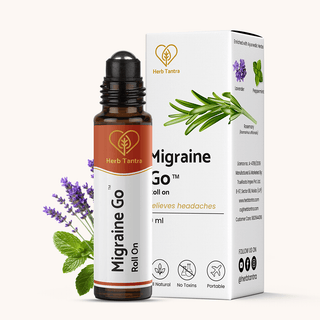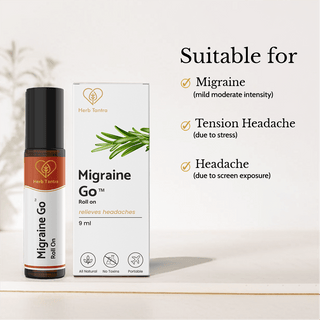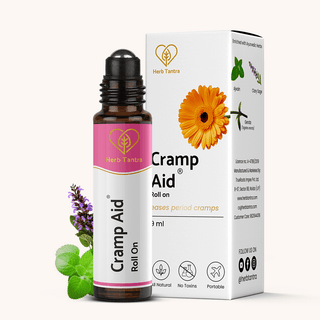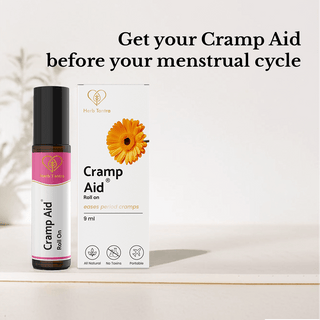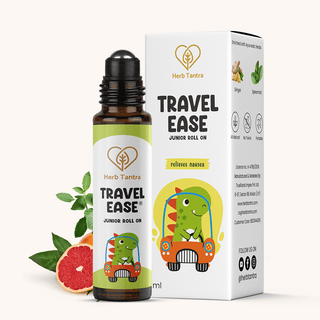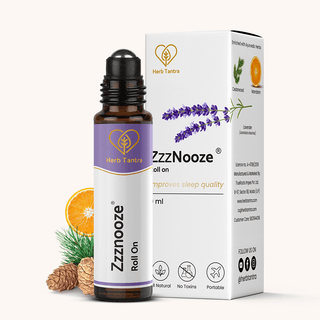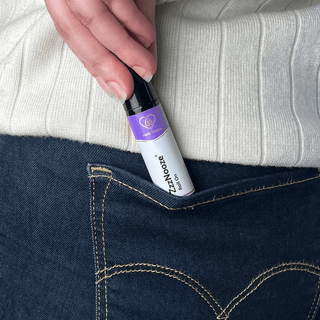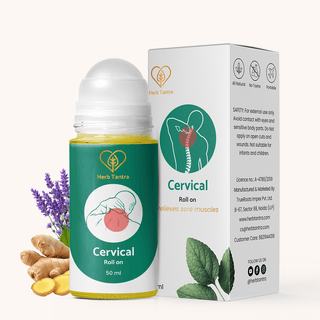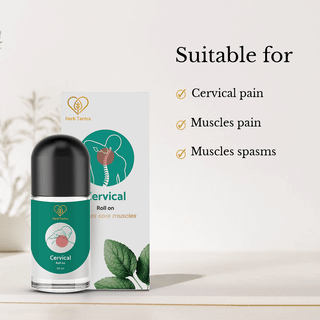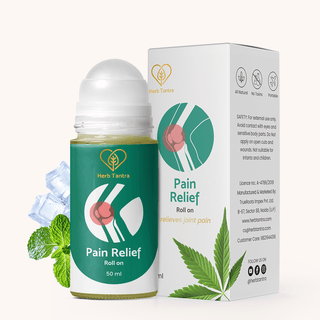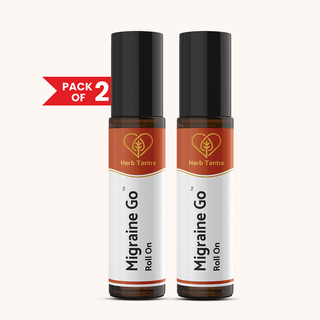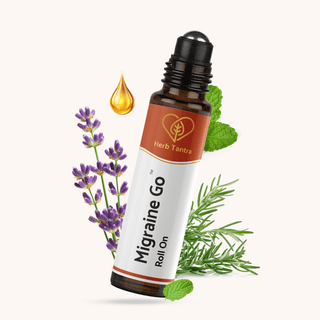When your child has a stuffy nose and spends the entire night sniffing in restlessness, the whole household feels it. As a parent, you’re naturally inclined to act fast. But that’s where the confusion begins. Should you reach for a cold syrup from the medicine cabinet, or go with a natural nasal roll-on?
If you’ve ever found yourself standing in the pharmacy aisle, unsure of what’s better for your little one, you’re not alone. In this article, we’ll walk through a simple comparison of nasal roll-ons versus conventional cold medications to help you choose what fits your child’s needs best.
What Are Cough/Cold Roll-Ons?
Cough/Cold roll-ons are gentle, largely natural solutions made to help kids breathe easier during a cold. It is meant for topical application without the use of any oral medication. It’s super easy to apply. A few swipes on the chest, neck, or even fabric near the collar is often enough.
Most natural kids cold roll-ons, like Herb Tantra’s No Congest Junior Roll-On, use essential oils like eucalyptus, peppermint, or lavender to help ease blocked noses gently. These ingredients are known for their calming scents and the ability to support clearer breathing when the nose feels blocked.
What makes roll-ons especially useful for children is how simple and non-invasive they are. There's no need to measure doses or deal with resistance. Just a soft, comforting routine that fits into bedtime or travels without fuss. Since they’re usually free from synthetic chemicals, many parents prefer them for daily congestion relief.
What Are Traditional Cold Medications for Kids?
Cold medications for kids usually come in the form of syrups, drops, or chewable tablets. You’ll often find combinations that treat multiple symptoms at once. For example, a stuffy nose, mild fever, sore throat, or cough.
These medicines work from inside the body and are commonly used for more severe colds or when symptoms stack up. Many parents rely on them for quick relief. However, it’s worth noting that some may cause side effects, like sleepiness, upset stomach, or restlessness, depending on the formula.
It’s important to follow dosage instructions carefully and choose age-appropriate versions of traditional cold medications.
Traditional cold medications indeed serve an important role in treatment when needed. But, as a parent, you must compare them with natural nasal roll-ons and decide what’s best for your child according to their specific symptoms.
A Parent-Friendly Comparison
|
Feature |
Natural Kids Nasal Roll-Ons |
Traditional Cold Medications (Syrups/Tablets) |
|
Application Method |
Applied externally on neck, chest, back, or fabric |
Taken orally |
|
Key Ingredients |
Essential oils like eucalyptus, peppermint, lavender |
Chemical compounds (e.g., antihistamines, decongestants) |
|
Relief Type |
Focused on easing nasal congestion |
Targets multiple symptoms (cough, fever, runny nose) |
|
Suitability for Daily Use |
Safe for regular use when applied correctly |
Not recommended for daily or long-term use without medical advice |
|
Age Appropriateness |
Often safe for infants and toddlers (check labels) |
Typically restricted based on age and weight |
|
Side Effects |
Rare (if used as directed; patch test if advised) |
May cause drowsiness, irritability, or upset stomach |
|
Onset of Relief |
Quick relief from blocked nose through soothing vapors |
May take time to work internally |
|
Convenience |
No measuring, mess-free, travel-friendly |
Requires dosage accuracy, not always palatable |
|
Parent Preference |
Preferred for light colds and daily symptom relief |
Used for stronger or multi-symptom colds under medical guidance |
Effectiveness for Nasal Congestion
Comfort from nasal congestion often depends on how directly the chosen remedy works. Nasal roll-ons use mild essential oil vapors to ease congestion at the surface level. The relief is usually felt right where it’s needed, which is, around the nose and chest.
Cold medications, on the other hand, usually act more broadly. Since they’re consumed internally, they may address not just the nose, but also symptoms like throat irritation or general inflammation. However, this also means the action may not be as focused or immediate for just nasal stuffiness alone.
Speed of Relief
Parents often notice that nasal roll-ons begin to soothe within minutes of application. The aroma works quickly, which can be especially useful during bedtime or when a child is feeling irritable.
Cold syrups, on the other hand, need time to be absorbed by the body. They typically don’t offer instant relief for a stuffy nose but might be better suited for more complex symptoms.
Safety and Side Effects
Many natural roll-ons avoid common additives like sugar, artificial dyes, or alcohol. This makes them easier on young, sensitive systems. When applied correctly, they tend to stay on the surface without disrupting digestion, sleep, or mood.
Medicines that work internally sometimes come with more noticeable side effects. Parents often report drowsiness or mild stomach issues after using certain syrups, especially if given repeatedly or without food.
Ease of Use and Application
Roll-ons fit naturally into a child’s routine. It’s even more comfortable during travel, sleep, or daycare. You don’t need a measuring spoon or a time chart. A swipe or two is usually all it takes.
Medicines, especially syrups, often come with added challenges. Getting the dosage right, coaxing your child to swallow it, or dealing with spills can sometimes turn a simple task into a struggle.
When to Choose What
If your child has mild congestion, and it happens to be during a seasonal change or bedtime, you can effectively manage it with a nasal roll-on. You don’t need syrups or other oral medication if your child is otherwise active and fever-free.
If, however, the cold seems more intense with symptoms like high temperature, chest heaviness, or signs of infection, it’s best to consult your pediatrician. In such cases, a prescribed cold medication might be more appropriate.
The best choice often depends on what your child’s body is asking for. Is it a light fix for a blocked nose? Or a full support for a more stubborn illness?
What Parents Should Watch Out For
Always check if the product is suitable for your child’s age. A blend made for older kids may not be safe for infants or toddlers.
Go through the ingredient list carefully. Some roll-ons contain camphor or synthetic menthol in strong concentrations, which aren’t ideal for very young children. Similarly, some cold syrups may include ingredients that feel too heavy or stimulating.
Most importantly, before using any new product, especially on sensitive skin, do a quick patch test. It only takes a few minutes but helps avoid unexpected irritation or discomfort.
If you’re looking for a natural, Ayurveda-powered alternative to traditional cold medicines for your child’s better and sound sleep tonight, our No Congest Junior Roll-On is here at your disposal. It slips into your routine with zero fuss. It’s travel-sized, mess-free, and easy to use, even while your child is fast asleep. Try it once, and you’ll likely keep one in every bag!
Key Takeaways
- Nasal roll-ons offer quick, topical relief from blocked noses using gentle essential oils.
- Traditional cold medications work internally and are better for treating multiple symptoms.
- Roll-ons are easier to use and often safer for daily or bedtime congestion support.
- Cold syrups may cause side effects like drowsiness or digestive upset in some children.
- The choice between roll-ons and syrups depends on symptom severity and age suitability.
FAQs
Q1. What is the best medicine for a child’s clogged nose?
For mild nasal congestion, a natural nasal roll-on with eucalyptus or lavender is often effective and gentle.
Q2. Are nasal roll-ons more effective than syrups?
Nasal roll-ons work faster for targeted nose relief, while syrups are better suited for multiple cold symptoms.
Q3. When should I use cold medication instead of a roll-on?
Use cold medicine if your child has a fever, cough, or signs of infection along with nasal congestion.
Q4. Are nasal roll-ons safe for daily use?
Yes, most are safe when used as directed. Always check age suitability and do a patch test first.
Q5. What side effects do traditional cold syrups have?
Some syrups may cause drowsiness, stomach discomfort, or restlessness, especially with repeated use.




